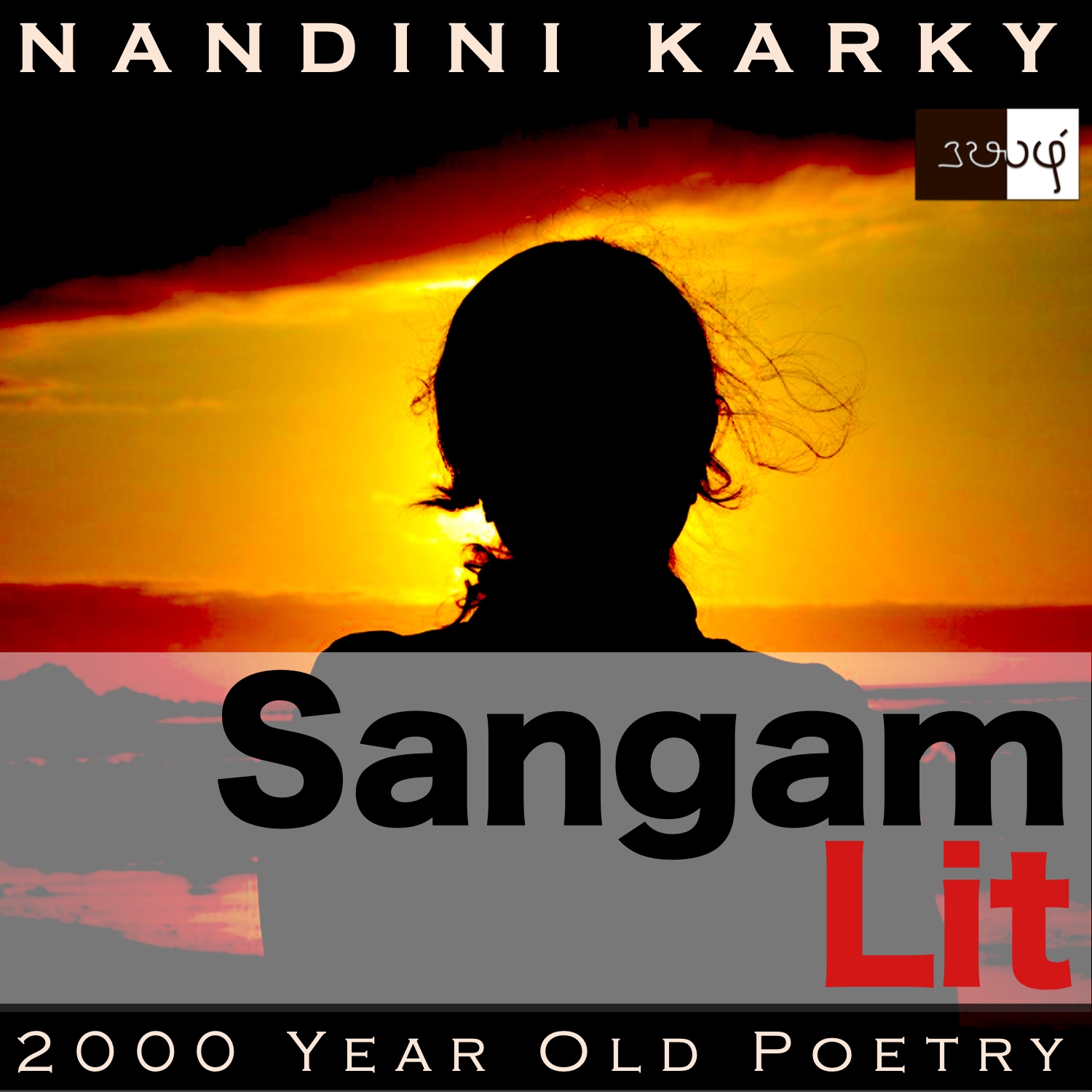Podcast: Play in new window | Download
Subscribe: Apple Podcasts | Spotify | Amazon Music | Android | iHeartRadio | Email | TuneIn | RSS | More

In this episode, we perceive the depths in the inner and outer life depicted in Sangam Literary work, Natrinai 54, written by Senthankannanaar. The verse is set in the ‘Neythal’ landscape or the coastal regions and speaks in the lamenting voice of the lady to a sea bird, bidding it to be a messenger of love.
வளை நீர் மேய்ந்து, கிளை முதல்செலீஇ,
வாப் பறை விரும்பினைஆயினும், தூச் சிறை
இரும் புலா அருந்தும் நின் கிளையொடு சிறிது இருந்து-
கருங் கால் வெண் குருகு!-எனவ கேண்மதி:
பெரும் புலம்பின்றே, சிறு புன் மாலை;
அது நீ அறியின், அன்புமார் உடையை;
நொதுமல் நெஞ்சம் கொள்ளாது, என் குறை
இற்றாங்கு உணர உரைமதி-தழையோர்
கொய்குழை அரும்பிய குமரி ஞாழல்
தெண் திரை மணிப் புறம் தைவரும்
கண்டல் வேலி நும் துறை கிழவோற்கே!
The poem sails in a sea of melody. The beats of ‘வளை-கிளை’, ‘இரும்-கருங்-பெரும்’ as well as ‘உணர உரைமதி’ paint the many shades of rhythm in the poem. The phrase ‘பெரும் புலம்பின்றே, சிறு புன் மாலை;’ meaning ‘the quickly passing evening fills me with suffering’ reminded me of the opening lines of a popular Tamil film song, ‘மாலை என் வேதனை கூட்டுதடி’ meaning ‘the evening adds to my pain, dear.’ In this modern version, the roles are reversed and it’s the man echoing his suffering. Man or woman, ancient or modern, what is it about an evening that fills one with yearning? While we let our minds muse on that, let’s turn our attention to the depiction of the natural world for we are about to meet the ‘ஞாழல்’ or the ‘tiger-claw tree’ as well as ‘கண்டல்’ or the ‘mangroves’. With so much beauty and meaning beckoning us, let us stride in to capture the sense of this verse.
After being in a relationship with the lady for sometime, the man fails to come see her for a few days. The lady, missing him, turns to a sea-bird on the shore and she says,“O black-footed white egret, even though you prefer to leap and fly over the surrounding waters with your kin, fluttering those pure feathers of yours, why don’t you bid your mate to eat the flesh-smelling fish by this creek and stay a little longer with me? Please listen to what I have to say. This fleeting evening is filling me with great sorrow. If you can see my pain, you will be filled with kindness. Do not dismiss me as a stranger, whose concerns don’t affect you. Please understand my suffering and speak to my man so that he realises my state. Fly to my man, the lord of the shore, where blooms the gnazhal trees, whose leaves are the favoured attire of women. Yes, that shore, fenced by the mangrove trees, whose dark backs are caressed by the clear waters of the ocean.”
It may seem a simple poem, like a muddy shell on the outside, but there are many, many pearls hidden within. Let’s start with the outer world depicted before we dive within. The man’s home by the sea, is sketched for us by first painting the scene of the ‘gnazhal’ trees, which is crowned with the adjective ‘குமரி ஞாழல்’ meaning ‘a girl’s gnazhal’, adding that it was filled with clusters of leaves that women preferred to dress themselves in. So here, we find a reference to the costume of Sangam women who adorned themselves with these leaves. Searching to find how exactly these leaves look, I found them to have a striking pattern in two different shades of green and came away stunned by the fashion sense of these leaf-clad ancient women! In the description of the other tree, ‘kandal’ or the mangroves, the lady says that the waves caress these trees and with that, she places a wish to be in the embrace of her man again. Another subtle description of these mangroves is the way it’s called ‘கண்டல் வேலி’ meaning ‘mangrove fence’. A fence and what a fence, the mangroves are, to protect the land from the fury of the floods! Even now in areas prone to tsunamis, the only defence is the mangroves. It’s the protective cover of these mangroves that we have been thoughtlessly tearing apart!
Turning our empathetic ears to the lady, let’s take in her words and see what the world within, has to tell us. In the beginning, when the lady keeps stressing about how the bird flies around as a flock and in speaking of its mate, it’s her loneliness that she’s highlighting. Isn’t it something we all can identify with? When we feel we lack something, we tend to see that thing we seek, popping up in the company of people all around us. It’s a trick our minds play on us and you can trust those insightful Sangam poets to nab this aspect of human behaviour. Then, we see her making a passionate plea to the bird saying that, ‘If you understand my pain, then you will be filled with kindness’, adding that the bird must not think of her as a stranger. How the roles are reversed now! Suffering because of the many, man-made environmental threats, it’s the birds and trees crying to us, ‘Don’t see us as strangers’. This poem is a gentle reminder of how we have forgotten our connection to the natural world. In the fleeting evening of our life, it’s time for us humans, to heed the plea of those birds and trees and be not a stranger to their plight!




தன் ஏக்கத்தை கூறி உளம் தேற ஓர் தோழி இல்லா ஏழை மடந்தை பறவையை தோழியாய் அணுகியுள்ளாள் . இயற்கையே துணை அன்று . மனிதனின் தன்னலம் இன்று எதிர்த்திசையில் . வேதனைதான்